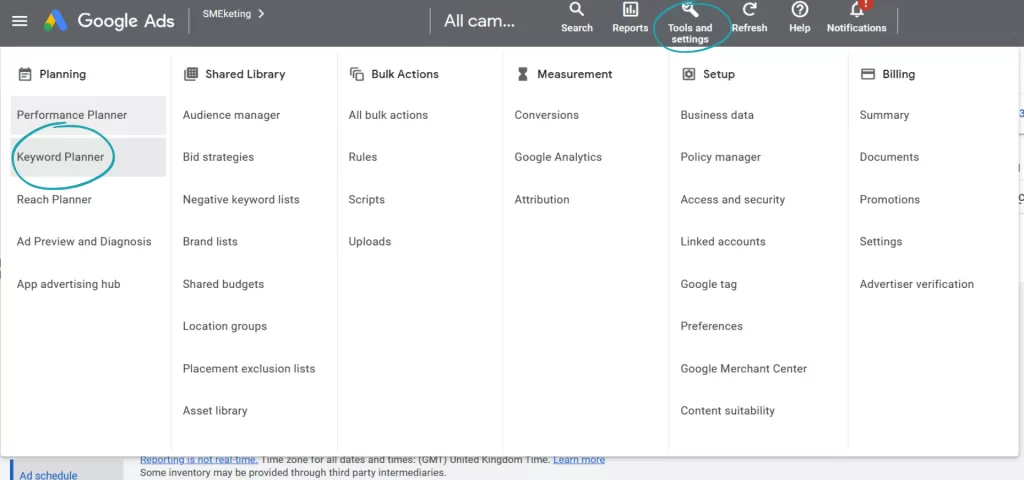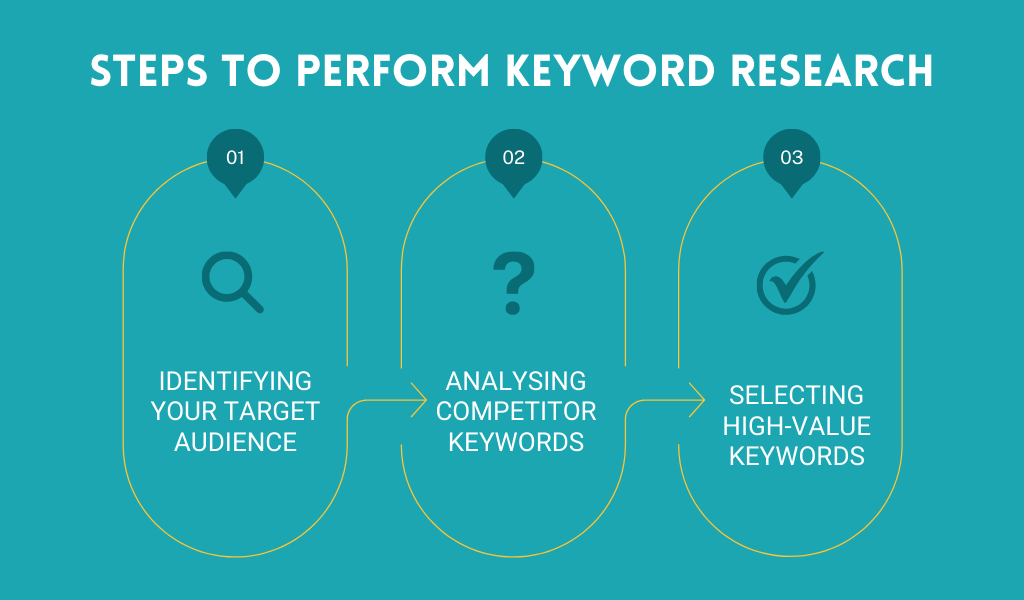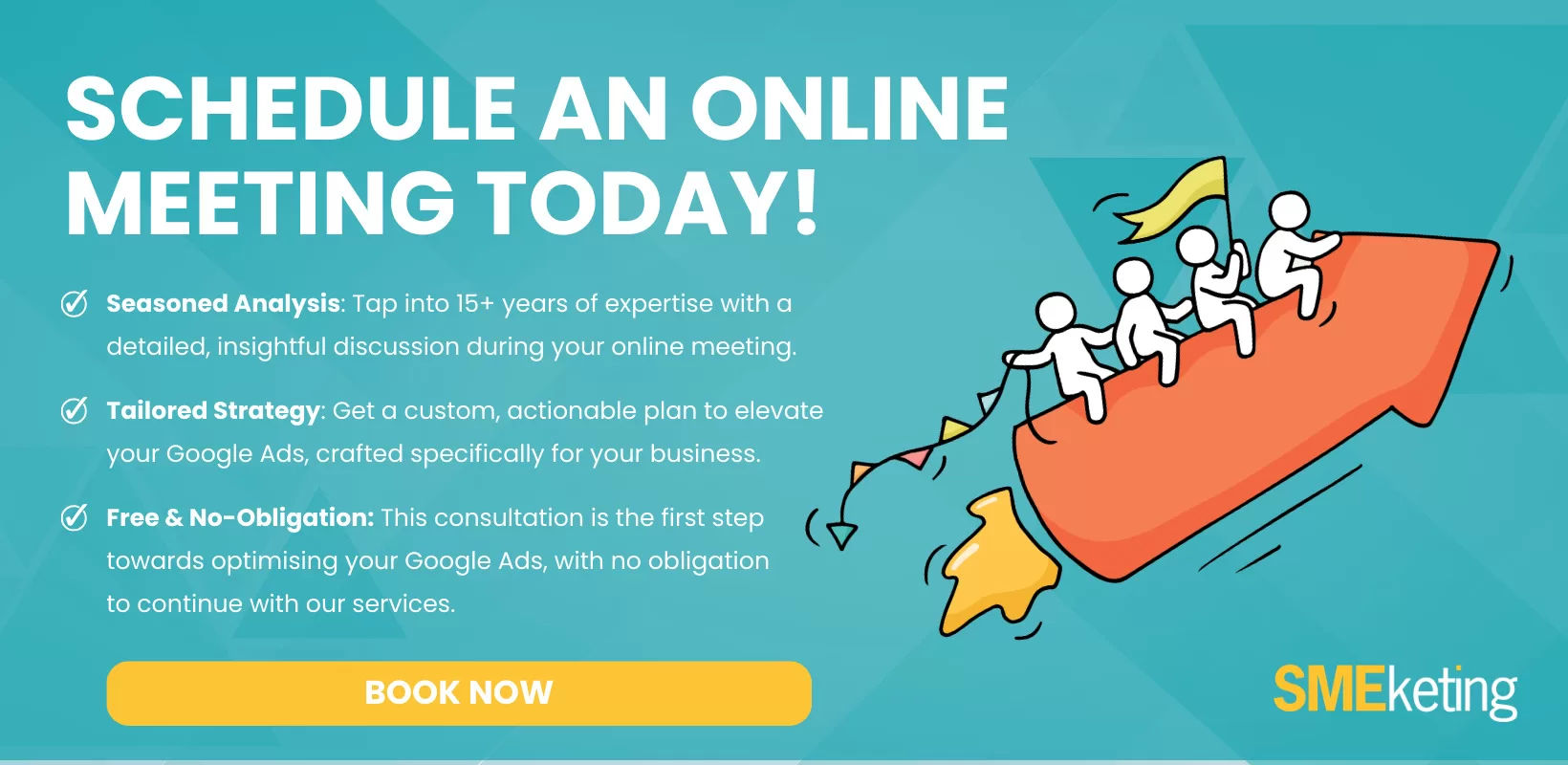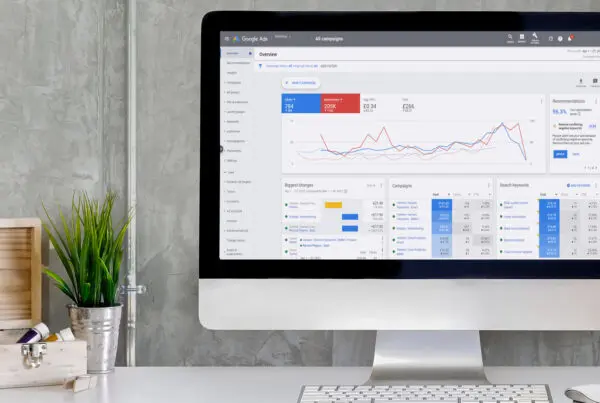In the world of digital marketing, keyword research plays a crucial role in the success of your digital marketing campaigns. By understanding the importance of keyword research for Google Ads and how to effectively conduct it, marketers can optimise their ads to reach the right audience and achieve their goals.
Understanding the Importance of Keyword Research
Keywords are the foundation of any Google Ads campaign. They are the words or phrases that users enter into the search engine when looking for something online.
By targeting relevant keywords, advertisers can optimise their ads to appear when users search for those keywords. This allows marketers to reach their target audience and maximise the performance of their ads.
Keyword research is a crucial step in the process of creating successful Google Ads campaigns. It involves identifying the most relevant and effective keywords that will attract the right audience to your ads. By understanding the importance of keyword research, you can ensure that your ads are seen by the right people at the right time.
The Role of Keywords in Google Ads
In Google Ads, keywords determine when and where your ads will be shown. When users search for keywords that are relevant to your products or services, your ads have the potential to appear in the search results. This is why it is essential to choose the right keywords that accurately represent what you have to offer.
Keywords play a significant role in determining the success of your Google Ads campaigns. They act as a bridge between your business and your potential customers. By selecting the right keywords, you can connect with users who are actively searching for products or services similar to what you provide.
Benefits of Effective Keyword Research
Effective keyword research provides several benefits for your Google Ads campaigns.
- It helps you understand the language your target audience uses when searching for products or services. By gaining insights into the specific keywords and phrases they use, you can create ads that resonate with your audience and increase the chances of conversion.
- Effective keyword research can help you discover new keywords and opportunities that you may not have considered initially. By exploring different variations and related terms, you can uncover hidden gems that have the potential to drive significant traffic to your website.
- Keyword research allows you to stay ahead of the competition. By identifying the keywords your competitors are targeting, you can develop strategies to outperform them and gain a competitive edge in the market.
Also – and this is a pretty important point – effective keyword research enables you to optimise your ad spend.
By focusing on keywords that have a high search volume and low competition, you can maximise the return on your investment and ensure that your ads are reaching the right audience.
Basics of Keyword Research for Google Ads
Keyword research involves identifying the keywords that are most relevant to your business and have the potential to drive targeted traffic to your website. By understanding the basics of keyword research, you can lay a strong foundation for your Google Ads campaign.
When it comes to keyword research, it’s important to dive deep into the world of search engine optimisation (SEO). SEO is the practice of optimising your website to rank higher in search engine results pages (SERPs). By incorporating the right keywords into your website’s content, you can increase your chances of appearing in front of your target audience.
One of the first steps in keyword research is brainstorming. Start by thinking about the products or services you offer and the words that come to mind when describing them. Consider the language your target audience might use when searching for what you offer. These initial ideas will serve as a starting point for your research.
What is Keyword Research?
Keyword research is the process of discovering and analysing the words and phrases that users enter into search engines.
Once you have your initial list of keywords, it’s time to dig deeper. Use keyword research tools, such as Google Keyword Planner, to explore the search volume and competition for each keyword. This data will help you prioritise which keywords to target in your campaign.
Another important aspect of keyword research is understanding user intent. User intent refers to the reason behind a user’s search query. Are they looking for information, a specific product, or a solution to a problem?
By aligning your keywords with user intent, you can create ads that resonate with your audience and increase the likelihood of conversions.
Types of Keywords to Consider
When conducting keyword research for Google Ads, it’s important to consider different types of keywords.
- Broad match keywords, for example, allow your ads to show for searches that are similar to your keywords
- Exact match keywords, on the other hand, only display your ads for searches that (kind of) exactly match your keywords (we like to call it ‘Exact-ish’ match!)
By considering the different types of keywords, you can optimise your campaign to reach a wider audience or focus on a more specific audience.
In addition to broad match and exact match keywords, there are also phrase match and negative match keywords.
- Phrase match keywords trigger your ads when the search query includes the exact phrase or a close variation of it
- Negative match keywords, on the other hand, prevent your ads from showing when certain words or phrases are included in the search query
Choosing the right mix of keyword match types is crucial for the success of your Google Ads campaign. It allows you to fine-tune your targeting and ensure that your ads are shown to the right people at the right time.
Remember, keyword research is an ongoing process. As your business evolves and new trends emerge, it’s important to regularly revisit and update your keyword strategy. By staying ahead of the curve, you can continue to drive targeted traffic to your website and achieve your advertising goals.
Tools for Conducting Keyword Research
When it comes to conducting keyword research for your Google Ads campaigns, you’re in luck. There are several tools available that can assist you in this process, providing you with valuable insights into search volume, competition, and keyword suggestions.
By utilising these tools, you can make informed decisions about which keywords to target, ultimately optimising your campaigns for success.
Google Keyword Planner
One of the most popular and widely used keyword research tools is the Google Keyword Planner. This free tool offers a wealth of information, including keyword search volume, competition level, and suggested bids. It also provides you with keyword suggestions based on your website or a seed keyword. Whether you’re a beginner or an experienced marketer, the Google Keyword Planner is an excellent starting point for any keyword research project.

Google Ads Keyword Planner
With the Google Keyword Planner, you can gain a deeper understanding of the keywords that are most relevant to your business or industry. By analysing search volume, you can identify which keywords are highly searched for and have the potential to drive significant traffic to your website.
Additionally, the competition level data allows you to gauge the level of difficulty in ranking for specific keywords, helping you prioritise your efforts and focus on keywords that offer the best opportunities for success.
Other Useful Keyword Research Tools
While the Google Keyword Planner is undoubtedly a valuable tool, there are other options available that can further enhance your keyword research efforts.
Popular tools include:
These all offer comprehensive keyword data and analysis, providing you with a more holistic view of the keyword landscape.
SEMrush, for example, not only offers keyword search volume and competition data but also provides insights into your competitors’ keywords. By analysing your competitors’ keyword strategies, you can identify gaps and opportunities that you can leverage to gain a competitive advantage.
Ahrefs, on the other hand, specialises in backlink analysis and SEO research. While it may not be solely focused on keyword research, it offers valuable insights into search trends and keyword difficulty, allowing you to make data-driven decisions when selecting keywords for your campaigns.
Moz Keyword Explorer, another popular tool, provides a comprehensive keyword analysis that includes search volume, difficulty score, and organic click-through rate. It also offers suggestions for related keywords, helping you expand your keyword list and discover new opportunities.
By utilising these additional keyword research tools, you can gather a wealth of information that will empower you to make strategic decisions for your Google Ads campaigns. Whether you’re looking to uncover new keyword opportunities, gain insights into your competitors’ strategies, or analyse search trends, these tools have got you covered.
Steps to Perform Keyword Research
Performing keyword research involves a series of steps that can help you identify the most effective keywords for your Google Ads campaign.
Identifying Your Target Audience
The first step in keyword research is to identify your target audience. Understand who your ideal customers are, what they are searching for, and what solutions they are looking for. By knowing your target audience, you can better align your keywords with their search intent.
Analysing Your Competitors’ Keywords
Another important step in keyword research is analysing your competitors’ keywords. By studying your competitors’ ads and websites, you can gain insights into the keywords they are targeting. This information can help you discover new keywords and identify gaps in your strategy.
Selecting High-Value Keywords
Once you have identified your target audience and analysed your competitors, it’s time to select high-value keywords for your Google Ads campaign. High-value keywords are those that have a high search volume, low competition, and are relevant to your business. By selecting the right keywords, you can improve the performance of your ads and maximise your return on investment.
Implementing Keywords into Your Google Ads Campaign
Once you have conducted keyword research and selected the most relevant keywords, it’s time to implement them into your Google Ads campaign.
Creating Relevant Ad Groups
Organise your keywords into relevant ad groups based on themes, products, or services.
This allows you to create targeted ads that closely align with the keywords in each ad group.
By tightly matching your ads to the user’s search intent, you can increase the chances of clicks and conversions.
Writing Effective Ad Copy with Keywords
When writing ad copy, it’s essential to incorporate your keywords naturally. Use your keywords in the headline, description, and display URL to increase the relevance of your ads. By aligning your ad copy with the user’s search query, you can improve the quality score of your ads and potentially lower your cost per click.
In conclusion, keyword research is a fundamental aspect of running successful Google Ads campaigns. By understanding the importance of keyword research, mastering the basics, utilising the right tools, and implementing keywords effectively, you can optimise your ads to reach the right audience and achieve your marketing goals.
- How to Do Keyword Research for Google Ads - January 15, 2024
- A Comprehensive Guide to Google Ads for B2C Businesses - January 8, 2024
- How to Write Calls to Action (CTAs) for Google Ads - December 25, 2023









